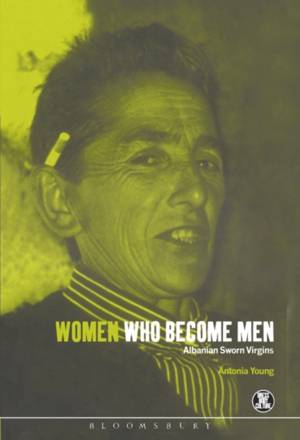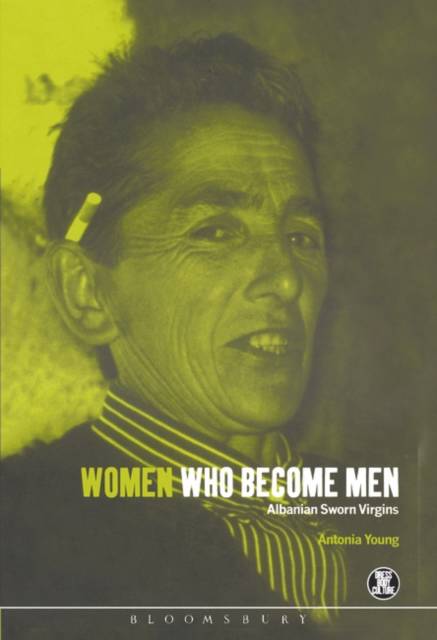
Bedankt voor het vertrouwen het afgelopen jaar! Om jou te bedanken bieden we GRATIS verzending (in België) aan op alles gedurende de hele maand januari.
- Afhalen na 1 uur in een winkel met voorraad
- In januari gratis thuislevering in België
- Ruim aanbod met 7 miljoen producten
Bedankt voor het vertrouwen het afgelopen jaar! Om jou te bedanken bieden we GRATIS verzending (in België) aan op alles gedurende de hele maand januari.
- Afhalen na 1 uur in een winkel met voorraad
- In januari gratis thuislevering in België
- Ruim aanbod met 7 miljoen producten
Zoeken
€ 271,45
+ 542 punten
Uitvoering
Omschrijving
Most people conceive of gender as a culturally informed response to a biological imperative. But such rigid notions are overturned by certain women in remote regions of Albania who elect to 'become' men simply for the advantages that accrue to them as a result. They crop their hair, wear men's clothes, roll their own cigarettes, drink brandy and carry guns. In short, their lives are much freer and less regimented than other members of their sex - but at a cost. These women must foreswear sexual relationships, marriage and children. They have been dubbed 'Sworn Virgins'. What is interesting is that in this region of the Balkans, simply to dress as a man and to behave as a man will earn these women the same respect accorded a man. This is no mean advantage in an area known for sexual inequality and where so many men have suffered violent, premature deaths, thereby heightening the need for more household heads. Traditionally as heads of household, men are revered and the women who attend them utterly subservient. But unlike 'normal' women, Sworn Virgins can inherit and manage property, and, in fact, may even be raised to assume the male role by parents who have no male heirs. Based on extensive interviews, this book tells the frank and engrossing stories of these women, but also sets their lives within the wider context of a country undergoing radical upheaval and social transformation.
Specificaties
Betrokkenen
- Auteur(s):
- Uitgeverij:
Inhoud
- Aantal bladzijden:
- 196
- Taal:
- Engels
- Reeks:
Eigenschappen
- Productcode (EAN):
- 9781859733356
- Verschijningsdatum:
- 1/01/2000
- Uitvoering:
- Hardcover
- Formaat:
- Genaaid
- Afmetingen:
- 163 mm x 240 mm
- Gewicht:
- 458 g

Alleen bij Standaard Boekhandel
+ 542 punten op je klantenkaart van Standaard Boekhandel
Beoordelingen
We publiceren alleen reviews die voldoen aan de voorwaarden voor reviews. Bekijk onze voorwaarden voor reviews.









